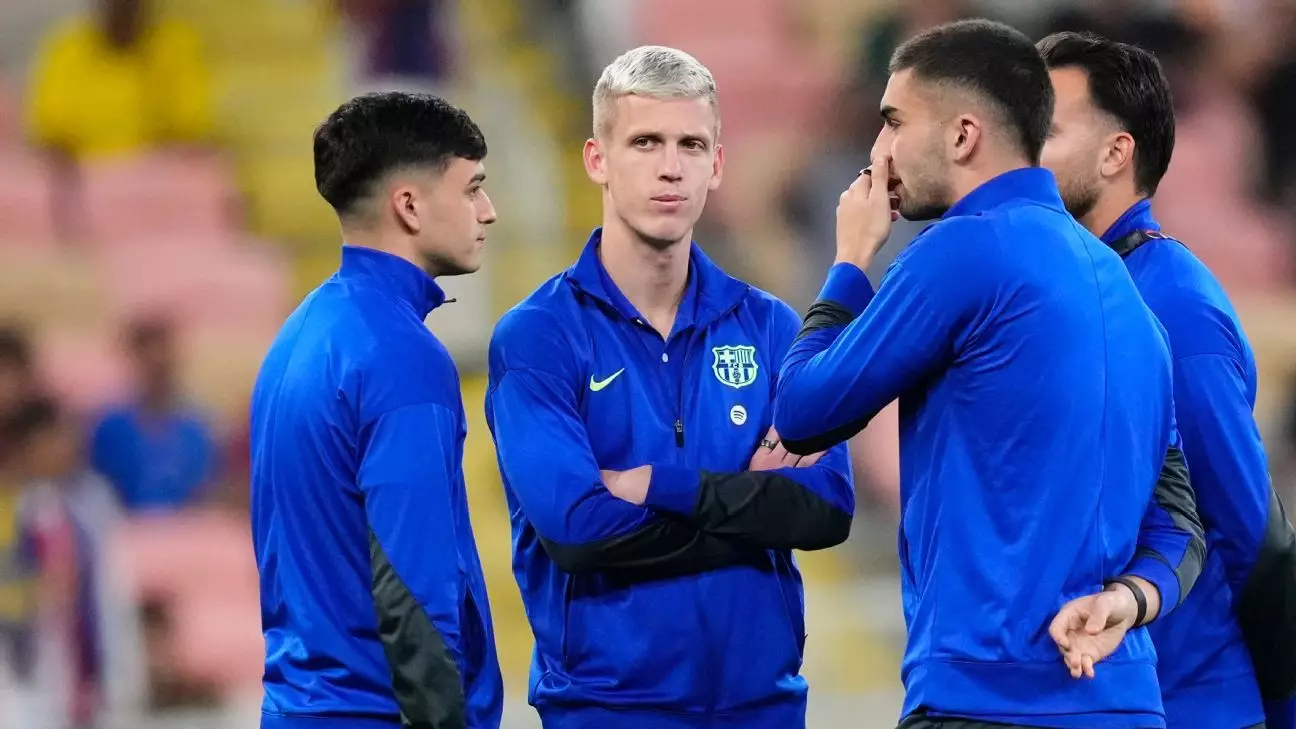The recent controversy involving FC Barcelona’s temporary registration of players Dani Olmo and Pau Víctor has ignited a firestorm of criticism from various corners of the Spanish football community, particularly from Athletic Club. This situation not only reflects the intricate relationship between clubs and regulatory bodies but also serves as a microcosm of the broader issues affecting football in Spain. As clubs strive to innovate and elevate their game, they must navigate the complex web of financial fair play rules, which are designed to maintain a level playing field. However, the emerging narrative indicates that policies may not be equally enforced among clubs, provoking questions about the integrity of the competition.
Athletic Club has been vocal about its disdain for Barcelona’s recent maneuvering, deeming the temporary player registrations as nothing short of “grotesque.” The club’s president, Jon Uriarte, emphasized how the decision reflects a broader inconsistency within Spanish football, where regulatory agencies like LaLiga and the Royal Spanish Football Federation (RFEF) face criticism for their perceived lack of enforcement of financial regulations. His remarks after Athletic’s 2-0 loss to Barcelona resonate with many clubs that feel overshadowed by the might of larger counterparts, and they underscore a growing concern that the established order may become untenable.
Uriarte’s comments draw attention to the contradictions within the system. On one hand, clubs are urged to grow and elevate the standards of their competition. On the other, they are forced to confront arbitrary decisions that seemingly undermine the very principles of fair competition. His argument highlights the dissonance between the ideals that governing bodies promote and the actions they take, prompting stakeholders to question whether the current system prioritizes commercial interests over the integrity of the game.
In the wake of the criticism, Barcelona’s sporting director, Deco, defended the club’s actions, asserting that every team is grappling with its own set of issues. He argued that rather than lament a perceived injustice, clubs should focus on their internal circumstances. Deco’s remarks bring to focus the resilience and adaptability of clubs in the face of challenges. The suggestion that clubs harness their resourcefulness rather than dwell on decisions that provoke consternation may ring hollow to those feeling marginalized.
Interestingly, the club’s defense hinges on the notion that the governing bodies and judicial systems are trustworthy and fair. Deco’s faith in these organizations can be interpreted as the collective hope that all stakeholders in Spanish football will adhere to principles of transparency and equality. This situation, however, raises crucial questions: Can the governing bodies ensure fairness in enforcement, and does the existing system embed equality amongst its members?
Athletic forward Iñaki Williams echoed sentiments of unease regarding the “tarnished” image of Spanish football stemming from this ordeal. His words ring particularly true for a footballing culture that prides itself on its rich heritage and competitive spirit. The growing perception that differential treatment exists among clubs fundamentally undermines the trust that fans and players place in the league’s integrity. When players express disappointment over inconsistent regulations, the implications extend beyond individual matches; they touch the very essence of what makes football compelling.
Williams’ perspective encapsulates a broader sentiment among players and fans alike—the desire for equitable treatment within an ecosystem that values fair competition. As players strive to overcome tremendous odds and showcase their talents, inconsistencies create a barrier to achieving their dreams, fueling division and distrust among supporters.
As Spanish football navigates the aftermath of this controversial episode, the call for introspection and reform is louder than ever. Stakeholders must assess the equilibrium between financial rules and fair play, seeking a resolution that restores faith in the sport. For the integrity of Spanish football to endure, collective efforts must prioritize transparency and equity in policy enforcement.
If clubs truly aspire to foster a competitive landscape where all have a fair shot at success, it is incumbent upon them to engage in discourse. As this latest situation unfolds, it serves as a reminder that in football, as in life, fairness is pivotal—not just in words but in action. By addressing these challenges head-on, Spanish football has an unparalleled opportunity to emerge stronger and more cohesive than ever before.

